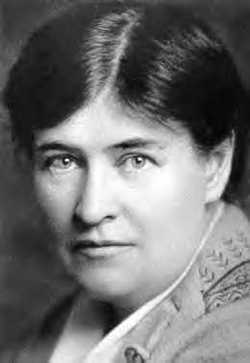Part 1 - To Be or Not To Be
 Many
folks have complimented my style of writing, describing it as
“tight”. As a rule, I don't use flowery or perfumey words nestled
in extra long sentences. I get to the point.
Many
folks have complimented my style of writing, describing it as
“tight”. As a rule, I don't use flowery or perfumey words nestled
in extra long sentences. I get to the point.
Keep
in mind, writing styles, like fast cars and tight clothes, are a
matter of personal opinion. I remember way back in college reading
works of Willa Cather, an acclaimed writer and story teller, yet my
experience felt like having my teeth slowly pulled.
She was NOT a
tight writer.
 |
| Willa Cather |
“Such
disappointments only gave greater zest to the nights when we acted
charades, or had a costume ball in the back parlour, with Sally
always dressed like a boy. Frances taught us to dance that winter,
and she said, from the first lesson, that Ántonia would make the
best dancer among us. On Saturday nights, Mrs. Harling used to play
the old operas for us—"Martha," "Norma,"
"Rigoletto"--telling us the story while she played. Every
Saturday night was like a party.”
-My
Átonia
Oh,
my God ... get to the point! No disrespect, Willa ...
Yes.
It's just me.
To
her credit, Ms. Cather did an exceptional job of “active voice” –
albeit annoying – which I've learned is critical in writing.
The
Nemesis: To
Be
In
Spanish (a
romantic language),
there are two forms
of “to be”: a
familiar (ser)
and a formal (estar).
In English, we have just the
one: “to
be”. It takes many forms. The
present tense (I am,
you are,
he/she/it is),
the past tense
(I was, you were, he/she/it/ was), the past participle (I/you
have been, he/she/it
has been)
and the present participle (I am being...bored). Exactly. Reading the
verb to
be
is boring.
I
was walking down the street.
She
was standing in the window.
He
was jumping up and down in joy.
So,
nix it.
I
walked down the street,
She
stood in the window.
He
jumped up and down for joy.
Tighter
writing, less words, more action. Done.
This
is trickier than it seems. Especially
when you consider the
verb “to be” indicates fact. Consider,
Jack
Harkness was immortal.
Kinda
tough to dance around that one. Remember the goal. A writer
gives
out facts all the time. It doesn't have to read like an equation.
Jack
Harkness = immortal
What
if you finesse the information?
Jack
Harkness often cursed his immortality.
Wow.
Not only did we learn about Jack's immortality, but we
got some sense regarding his
emotions around it. By eliminating the fact, we gained insight.
Hm.
This
isn't to say you should eliminate the verb altogether. When
characters talk, for instance, the verbs gets used all the time.
“Where
are you now?”
“I'm
at the grocery. Is there anything you want me to get?”
“I'm
almost home. I'll call if there's no milk.”
Trying
to lose “to be” can just get in the way.
“Give
me your location.”
“I
just pulled up to the grocery. Can you think of anything to get?”
“Let me get home. I noticed a shortage of milk earlier.”
Possible,
yes, but not necessary. Your characters talk the way, well, you want
them to. Once outside the conversation, however, tighten it up!
(For bonus points, how many times did I use the verb "to be" in this article, excluding the examples?)
Coming
next, Part 2 - The Function of Conjunction Junction


2 comments:
Good article. I enjoyed it!
oh yeah and you used "to be" four times...
Three expressed, one implied. "Kinda tough" is really "It is kinda tough"
I counted 6, Jennifer, plus the implied. It's sneaky! (See what I did there?)
Post a Comment